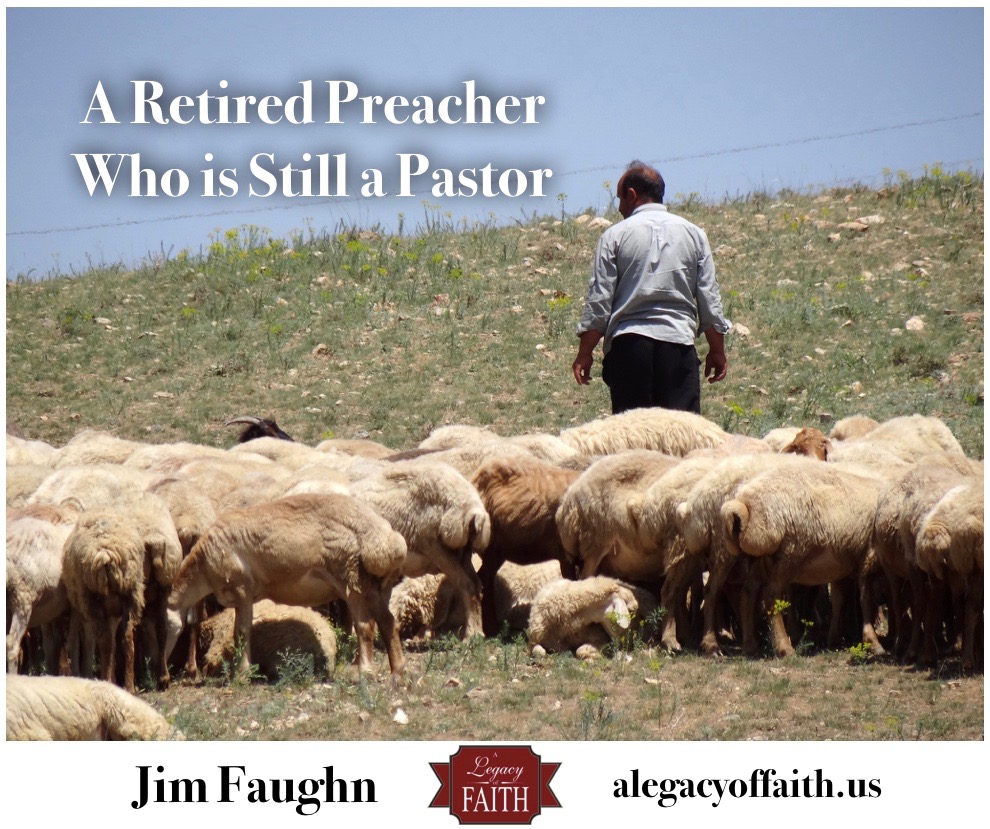A Retired Preacher Who is Still a Pastor

How many of the following statements confuse you?
- I began preaching full-time for a congregation in southern Illinois in 1978, but I was not a pastor.
- I moved to another location in Southeast Missouri in 1985. For eleven years, I served as the full-time preacher there, but I was not a pastor.
- I began preaching full-time for the Central church of Christ in Paducah in 2001, but I was not a pastor.
- On December 21, 2003, I started serving that congregation as one of the pastors.
- From December 21, 2003, until December 31, 2016, I was both a full-time preacher for the Central church and also one of the pastors.
- On December 31, 2016, I retired as a full-time preacher for that congregation, but I am still one of its pastors.
Is your head spinning yet? If it is, I think there may be a simple explanation for that.
It may very well be that you are thinking like many in the religious world think. You may be thinking that the local preacher is the pastor of the congregation where he preaches.
If that is the reason for your confusion, I would encourage you to consult the New Testament. A careful study of that inspired document may clear up your confusion.
As you study, you will find that, in the New Testament church, there is a plurality of men who serve the congregation in a special way. There are different terms used to identify these men and their work.
I do not intend to make this a tedious word study of either the Greek or the English languages. I will merely make a few points and leave it to the reader to follow the example of the Bereans who spent significant time “…examining the Scriptures daily to see if these things were so” (Acts 17:11, ESV).
I will refer briefly to only two passages of scripture in order to justify my statement that different terms are used to describe the same group of men in the New Testament. The first passage is in Acts 20:17-38. Among other things in this passage we learn that:
- Paul was meeting with the elders of the church at Ephesus (v. 17).
- He called these same men overseers (v. 28). It is interesting to notice in passing that the Greek word translated “overseers” here is translated as “bishops” elsewhere and in other translations.
- He gave this same group of men an important charged. That charge was to “feed” or “care for” the church (v. 28). The Greek word used here is the verb form of the word that comes to us in the English language as shepherd or pastor.
The other passage where this “interchange” of terms may be seen is in 1 Peter 5.
- Peter is writing to the elders (v. 1).
- He instructs those elders to “feed” or “shepherd” the flock of God (v. 2). Again, that word is the verb form of the noun that, in the English language, is pastor.
- Further, these elders/pastors are to “exercise oversight” (v. 2) or assume the duties of bishops.
In almost forty years of preaching, I have never been the pastor anywhere. I have served as the preacher for three different congregations. I have, for a number of years, been a pastor/elder/bishop for one congregation.
Please allow me to add one more consideration to this discussion. In the New Testament, there are specific requirements which must be met in order for a man to serve as an elder/bishop/pastor.
Are you familiar with them? You may find them in 1 Timothy 3 and Titus 1.
I will not take the time to discuss each one of them. I will only mention two and ask for you to consider them. Both of these have to do with what might be called “family requirements.” The Holy Spirit informs us that an elder/shepherd/pastor must be the husband of one wife and have believing children (1 Tim. 3:2; Titus 1:6).
The man who was chosen by the Holy Spirit to pen those words (Paul) was not married and had no children, but he was arguably the best preacher (other than our Lord) the world has ever known. Because of the requirements he wrote down himself, he was never – and could never be – a pastor.
A local congregation may (and many times does) have only one preacher. If that congregation is organized the way the God wants it to be organized, it cannot have only one pastor.
When people ask me if I am the pastor for the Central church of Christ in Paducah, they may not understand what they are asking. They also may not understand my answer when I say, “I am one of them.”
To Receive Every Article from A Legacy of Faith through Email for Free, Click Here
AUTHOR: Jim Faughn
Photo background credit: Adam Jones on Creative Commons


